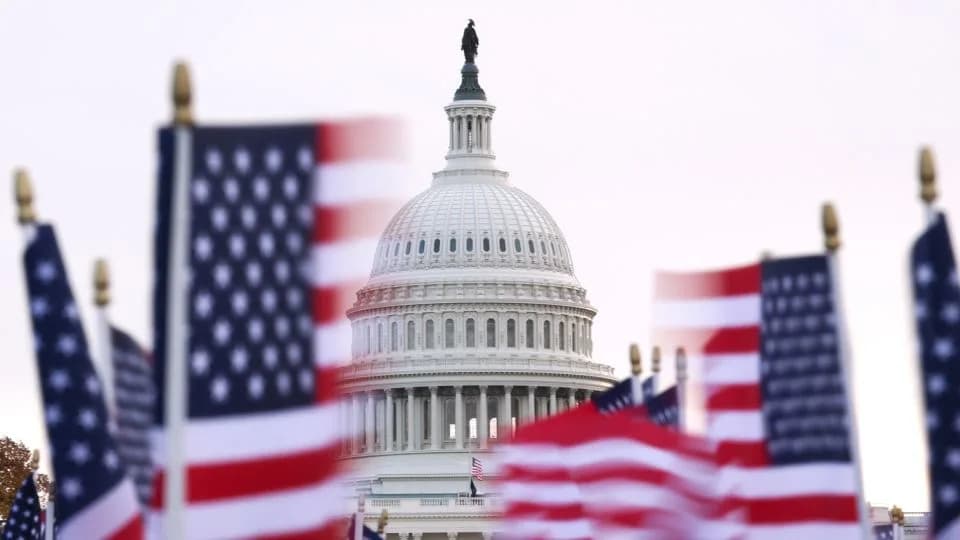What happened: The FAA ordered a 4% reduction in traffic at 40 major U.S. airports starting Friday to ease safety risks from an air traffic controller shortage during the 37-day federal shutdown.
Impact: Major airlines immediately began cancelling flights; industry estimates suggest up to 1,800 flights and roughly 268,000 seats could be affected.
Why it matters: Cuts — affecting flights between 6 a.m. and 10 p.m. and possibly rising to 10% — come two weeks before Thanksgiving and increase pressure on lawmakers to end the shutdown.
FAA Orders Flight Reductions at 40 Major U.S. Airports as Controller Shortage Deepens

FAA orders reductions to ease strain on air traffic control during government shutdown
The Federal Aviation Administration has ordered a 4% reduction in scheduled air traffic at 40 major U.S. airports beginning Friday to address safety risks caused by an air traffic controller staffing shortage linked to the ongoing federal government shutdown. Regulators identified high-volume markets where capacity must be trimmed by 6 a.m. ET on Friday; the reductions may rise in the coming days and affect flights scheduled between 6 a.m. and 10 p.m.
Major carriers begin cancellations
Delta, United and Southwest began cancelling flights on Thursday evening. Delta said it will cancel about 170 flights on Friday and a smaller number on Saturday; Southwest announced roughly 120 cancellations for Friday; and United said it plans to cut about 4% of its flights from Friday through Sunday. Aviation analytics firm Cirium estimated the cuts could total as many as 1,800 flights and more than 268,000 seats, though the final tally will depend on how airlines adjust schedules.
Airports and passengers affected
The reductions span more than two dozen states and include many of the nation’s busiest hubs — Atlanta, Charlotte, Denver, Dallas/Fort Worth, Orlando, Los Angeles, Miami and San Francisco among them. Multiple airports in large metropolitan areas such as New York, Houston and Chicago are expected to be affected. All three airports serving Washington, D.C. — Dulles International, Baltimore/Washington and Reagan National — are included, increasing the likelihood of disruption for lawmakers and other travelers.
Why the cuts are happening
The FAA says the temporary cuts are intended to preserve safety as air traffic controllers — designated essential workers — have been working without pay since the start of the shutdown and staffing levels have declined. Officials say some facilities are nearing staffing limits because controllers are working mandatory overtime, taking on additional jobs, or unable to report for duty. The administration has estimated shortages of up to 3,000 controllers and said thousands of other federal employees remain unpaid.
FAA statement: The agency is reducing traffic in high-pressure locations to maintain safe operations while the shutdown continues.
Industry response and customer protections
United’s CEO described the FAA action as an effort to relieve pressure on the aviation system and emphasized safety as the top priority. Delta said it expects to operate the majority of flights, including long-haul international service, and will extend greater flexibility for customers to change or refund tickets, including basic-economy fares. American Airlines said most customers would not be affected and long-haul international flights will continue as scheduled, while offering rebooking and refund options.
Broader consequences
Analysts and industry groups warned that the cuts, coming two weeks before the Thanksgiving travel peak, could cascade into widespread delays and disruptions. Officials also cautioned the shutdown could slow other federal work, such as the National Transportation Safety Board coordination in ongoing accident investigations, including a recent UPS cargo plane crash in Louisville that killed at least 12 people.
This article was updated on 6 November to correct the number of days the government has been shut to 37 and to confirm that the Federal Aviation Administration manages U.S. airspace. Reporting from multiple outlets, including the Associated Press, contributed to this overview.
Help us improve.




























